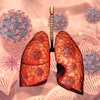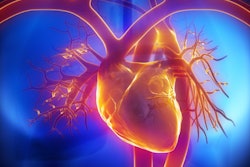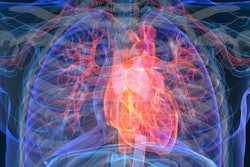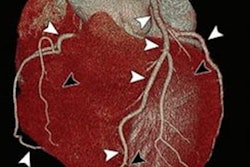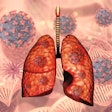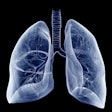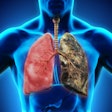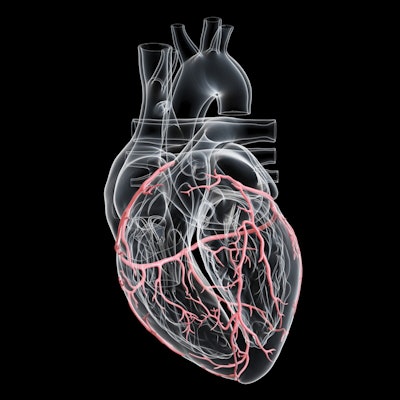
Coronary CT angiography (CCTA) shows that aspirin therapy is not effective for reducing adverse events caused by nonobstructive cardiovascular disease (CVD), according to an observational study published April 28 in Radiology: Cardiothoracic Imaging.
The findings could help clinicians better calibrate patient care, said study co-author Dr. Jonathan Leipsic of the University of British Columbia in Vancouver, Canada, in a statement released by the RSNA.
"While observational in nature, our data calls into question the value of initiating aspirin therapy following the diagnosis of non-obstructive coronary artery disease on a coronary CT angiography," he said.
Nonobstructive heart disease is characterized by less than 50% narrowing of the coronary arteries due to plaque buildup. CCTA is often used as an initial evaluation tool to detect plaque, the researchers noted.
Statins are prescribed to individuals with nonobstructive heart disease to reduce production of low-density lipoprotein (LDL) cholesterol and draw cholesterol out of plaque. Aspirin has also been recommended for this purpose, but it is unclear whether aspirin effectively reduces major adverse events or all-cause mortality in people with nonobstructive coronary artery disease.
In the current study, Leipsic and colleagues used data from the CONFIRM (COronary CT Angiography EvaluatioN For Clinical Outcomes: An InteRnational Multicenter) registry, which includes information from patients who have undergone CCTA. The study included 6,386 patients who had either no detected coronary plaque (3,571, or 56%) or who had been diagnosed with nonobstructive coronary artery disease (2,815, or 44%) and were followed for a mean period of 5.7 years. The researchers tracked both aspirin and statin use for each group.
The team found that aspirin therapy did not show statistical significance for reducing major adverse cardiovascular events or all-cause mortality in people with nonobstructive heart disease, but that statin use did (p = 0.007).
"Ultimately, further research is required to determine whether, and at what threshold, clinicians should consider prescribing aspirin for patients upon the identification of non-obstructive coronary artery disease on coronary CT angiography," Leipsic said in the statement.
The study has some limitations that should be taken into consideration when considering its results, wrote Dr. Arzu Canan and Dr. Ann Marie Navar, PhD, both of the University of Texas Southwestern Medical Center in Dallas, in an accompanying commentary.
"How should clinicians interpret [this study's] findings? Very cautiously," they wrote. "Although the authors attempt to control for differences in several factors including comorbidities, smoking status, body mass index, age, family history, and sex, significant residual confounding likely remains. For example, numerous important other risk factors, including lipids, blood pressure levels, medication use, and laboratory data were not measured in the study at baseline, nor were they controlled for over follow-up."
